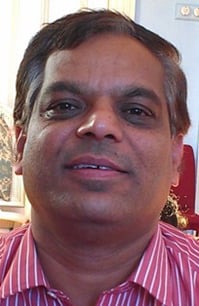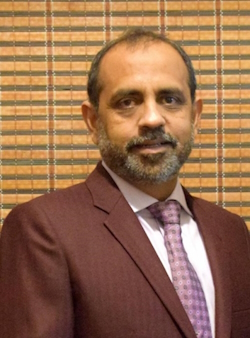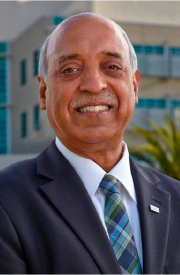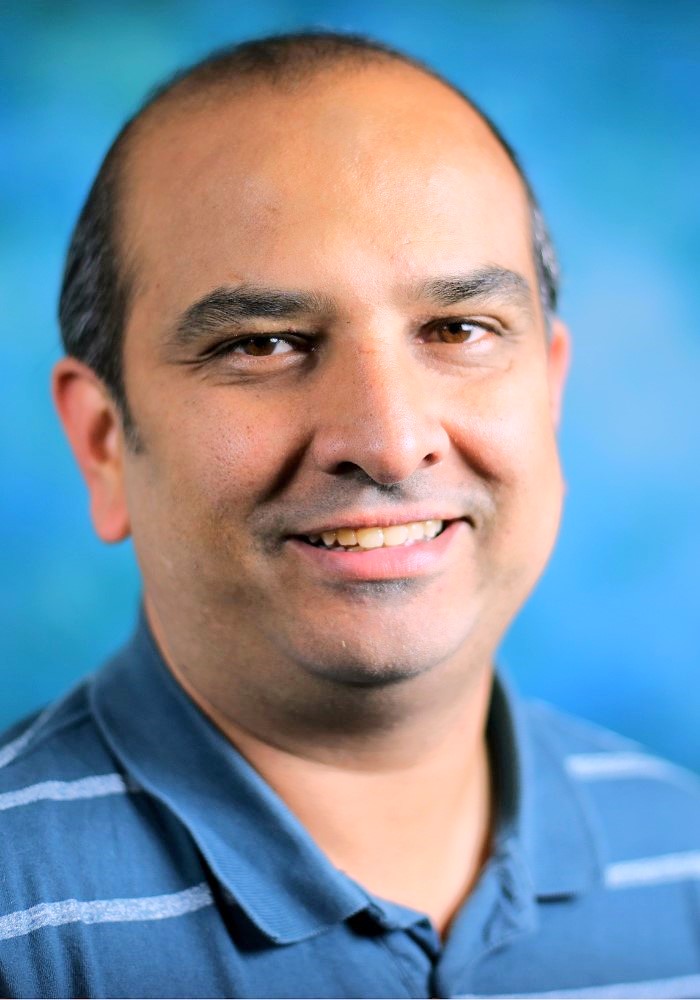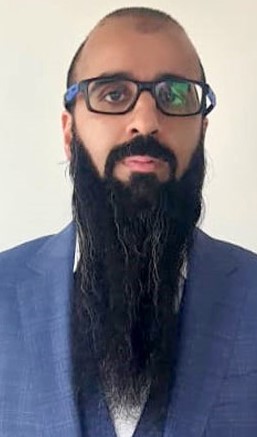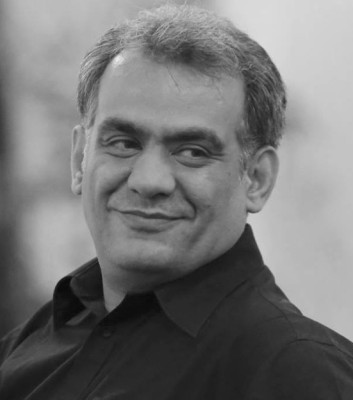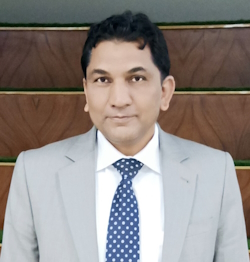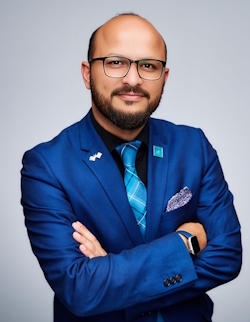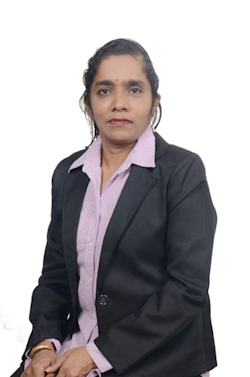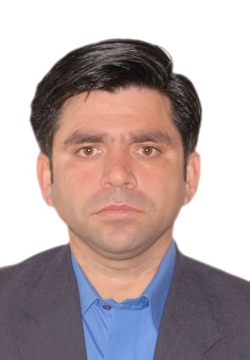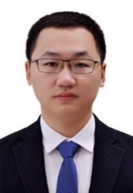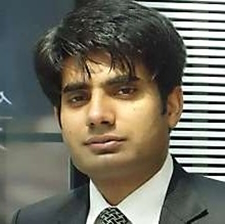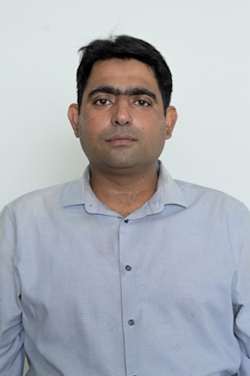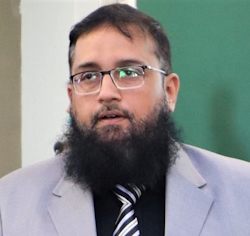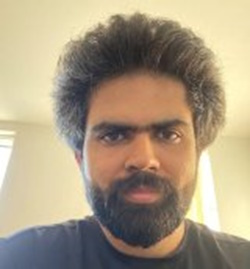Keynote Speakers
Prof. Rajkumar Buyya
CEO, Manjrasoft Pvt Ltd, Melbourne, Australia
Director, Cloud Computing and Distributed Systems (CLOUDS) Lab,
The University of Melbourne, Australia
Biography:
Dr. Rajkumar Buyya is a Redmond Barry Distinguished Professor and Director of the Cloud Computing and Distributed Systems (CLOUDS) Laboratory at the University of Melbourne, Australia. He is also serving as the founding CEO of Manjrasoft, a spin-off company of the University, commercializing its innovations in Cloud Computing. He has authored over 850 publications and seven textbooks including "Mastering Cloud Computing" published by McGraw Hill, China Machine Press, and Morgan Kaufmann for Indian, Chinese and international markets respectively. Dr. Buyya is one of the highly cited authors in computer science and software engineering worldwide (h-index=169 g-index=373, and 152,700+ citations). He graduated 60 PhD students who are working in world-leading research universities and hightech companies such as Microsoft, Google, and IBM. He has been recognised as IEEE Fellow, a "Web of Science Highly Cited Researcher" for seven times since 2016, the "Best of the World" twice for research fields (in Computing Systems in 2019 and Software Systems in 2021/2022/2023) as well as "Lifetime Achiever" and "Superstar of Research" in "Engineering and Computer Science" discipline twice (2019 and 2021) by the Australian Research Review.
Software technologies for Grid, Cloud, and Fog computing developed under Dr.Buyya's leadership have gained rapid acceptance and are in use at several academic institutions and commercial enterprises in 50+ countries around the world. Manjrasoft's Aneka Cloud technology developed under his leadership has received "Frost New Product Innovation Award". He served as founding Editor-in-Chief of the IEEE Transactions on Cloud Computing. He is currently serving as Editor-in-Chief of Software: Practice and Experience, a long-standing journal in the field established 54+ years ago. He has presented over 750 invited talks (keynotes, tutorials, and seminars) on his vision on IT Futures, Advanced Computing technologies, and Spiritual Science at international conferences and institutions in Asia, Australia, Europe, North America, and South America. He has recently been recognized as a Fellow of the Academy of Europe. For further information on Dr.Buyya, please visit his cyberhome: www.buyya.com
Title of the talk: Neoteric Frontiers in Cloud and Quantum Computing
Abstract
The twenty-first-century digital infrastructure and applications are driven by Cloud computing and Internet
of Things (IoT) paradigms. The Cloud computing paradigm has been transforming computing into the 5th
utility wherein "computing utilities" are commoditized and delivered to consumers like traditional utilities
such as water, electricity, gas, and telephony. It offers infrastructure, platform, and software as services,
which are made available to consumers as subscription-oriented services on a pay-as-you-go basis over the
Internet. Its use is growing exponentially with the continued development of new classes of applications
such as AI-powered models (e.g., ChatGPT) and the mining of crypto currencies such as Bitcoins. To make
Clouds pervasive,Cloud application platforms need to offer (1) APIs and tools for rapid creation of scalable
and elastic applications and (2) a runtime system for deployment of applications on geographically
distributed Data Centre infrastructures (with Quantum computing nodes) in a seamless manner.
The Internet of Things (IoT) paradigm enables seamless integration of cyber-and-physical worlds and
opening opportunities for creating new classes of realtime applications such as smart cities, smart robotics,
and smart healthcare. The emerging Fog/Edge computing models support latency sensitive/real-time IoT
applications with a seamless integration of network-wide resources all the way from edge to the Cloud.
This keynote presentation will cover (a) 21st century vision of computing and identifies various emerging
IT paradigms that make it easy to realize the vision of computing utilities; (b) innovative architecture
for creating elastic Clouds integrating edge resources and managed Clouds, (c) Aneka 6G, a 6
th generation
Cloud Application Platform, for rapid development of Big Data/AI applications and their deployment on
private/public Clouds driven by user requirements, (d) a novel FogBus software framework with
Blockchain-based data-integrity management for end-to-end IoT-Fog/Edge-Cloud integration for execution
of realtime IoT applications, (e) experimental results on deploying Big Data/IoT applications in
engineering, health care (e.g., COVID-19), deep learning/Artificial intelligence (AI), satellite image
processing, and natural language processing (mining COVID-19 literature for new insights) on elastic
Clouds, (f) QFaaS: A Serverless Function-as-a-Service Framework for Quantum Computing, and (g) new
directions for emerging research in Cloud, Edge, and Quantum computing.
Prof. Shoab A. Khan
Chancellor
Sir Syed Case Institute of Technology, Islamabad,, Pakistan
Biography:
Dr. Shoab Khan is a distinguished expert in the field of chip design, renowned for his pioneering contributions and extensive experience spanning over two decades. He earned his PhD from the esteemed Georgia Institute of Technology, USA, in 1995, with a specialization in Optimally solving Multichip Partitioning and Layout Problem, laying the foundation for his illustrious career.
During his tenure at Georgia Tech, Dr. Khan participated in a Co-op program, immersing himself in the industry through engagements with premier technology companies such as Scientific Atlanta, Picture Tel, and Cisco Systems. This hands-on experience endowed him with invaluable insights into real-world challenges and innovative solutions.
In the year 2000, Dr. Khan led a group of highly capable team of around 180+ individuals as Chief Architect for the groundbreaking project of designing the world's highest density media processor chip for VoIP media gateways. His ingenuity and technical prowess resulted in the filing of 5 US patents that includes a patent him as primary inventor on System on Chip Design with distributed processors.
Dr. Khan's scholarly contributions extend far and wide, with over 370 international publications, advising 30+ PhD scholar to successful completion while serving as Professor and HoD in College of EME, NUST. His seminal textbook on Digital Design of Signal Processing Systems, published by John Wiley & Sons, stands as a cornerstone in academia, adopted by numerous universities worldwide.
Currently, Dr. Khan's interests lie in pushing the boundaries of chip architecture, particularly in areas such as Generative AI, Large Language Models (LLMs), and Blockchain technology. His visionary leadership as Chancellor of Sir Syed CASE Institute of Technology and CEO of CARE (Center for Advanced Research in Engineering) underscores his commitment to advancing technological frontiers in Pakistan.
Title of Talk Generative AI, LLMs, and RAG: Transforming Academia, Industry, and Government for Pakistan’s Future
Abstract The world is undergoing a massive technological revolution, driven by advancements in Generative AI, Large Language Models (LLMs), Retrieval-Augmented Generation (RAG), and Agentic Platforms. These transformative technologies are reshaping how we work, learn, and innovate. For Pakistan, embracing this frontier offers unprecedented opportunities to leapfrog developmental challenges—but only if we act decisively.
In this keynote, I will explore the transformative potential of these technologies with a focus on Pakistan’s academia, industry, and government. Drawing from my personal experience, I will share insights into augmenting teaching with Generative AI, including two courses I am teaching this semester—Generative AI-Assisted Chip Design and Leadership in the AI Era—as well as AI for All, which I taught last Fall. From an industrial perspective, I will highlight ongoing projects that integrate Generative AI, IoT, and the DoTAI platform developed at the Center for Advanced Research in Engineering (CARE), showcasing how these technologies are driving innovation and real-world impact. On the governance front, as an advisory board member and head of key committees, I am actively advocating for AI adoption by the government to enhance decision-making, improve public services, and prepare Pakistan for an AI-driven future.
The talk will also address Pakistan’s unique challenges, including gaps in digital infrastructure, limited AI literacy, and resistance to change. It will propose actionable strategies for students, educators, industry leaders, and policymakers to navigate this transformation. Emphasizing the urgency of preparing for this technological wave, the talk will advocate for a cohesive ecosystem where academia, industry, and government collaborate to ensure that Pakistan thrives in the age of Generative AI, rather than being left behind.
Invited Talks
Prof. Mohammad Ilyas
Professor,
College of Engineering and Computer Science,
Florida Atlantic University,Boca Raton, Florida 33431
Biography:
Dr. Mohammad Ilyas is a Professor in the College of Engineering and Computer Science at Florida Atlantic University, Boca Raton, Florida. He has been with the College since 1983. From 1994 to 2000, he was Chair of the Department of Computer Science and Engineering. He served as Associate Dean for Research for the College from 2002 through 2011, and as Dean of the College from 2011 to 2017. From July 2004 to September 2005, he also served the University as Interim Associate Vice President for Research and Graduate Studies
Dr. Ilyas has earned four academic degrees from four different countries. He received his B.Sc. degree in Electrical Engineering from the University of Engineering and Technology, Lahore, Pakistan, in 1976. In 1978, he was awarded a scholarship for his graduate studies, and he completed his MS degree in Electrical and Electronic Engineering in June 1980 at Shiraz University, Shiraz, Iran. In September 1980, he joined the doctoral program at Queen's University in Kingston, Ontario, Canada. He completed his Ph.D. degree Electrical Engineering in 1983. His doctoral research was about switching and flow control techniques in computer communication networks. In 2015, he earned his second Ph.D. in Educational Leadership – Higher Education, from Florida Atlantic University, Boca Raton, Florida. His doctoral research for his second doctoral degree was about globalization and higher education.
Dr. Ilyas has conducted successful research in the field of computer communication networks. His current research interests include wireless sensor networks, Internet of Things, smart systems, healthcare technologies. performance modeling, simulation, and impact of globalization on higher education. He has over 260 publications including one book, and 26 handbooks. He has supervised 16 Ph.D. dissertations and 38 M.S. theses to completion. He is currently supervising a group of 8 doctoral students. He has been a consultant to several national and international organizations. Dr. Ilyas is an active participant in several IEEE Technical committees and activities.
Dr. Ilyas is a Life Senior Member of IEEE, Fellow of IIIS, and was listed as a Fulbright Specialist from June 2017 to June 2022.
Title of the talk: Emerging Role of Artificial Intelligence
Abstract
Artificial Intelligence (AI) is considered a branch of science that deals with the process of machine learning and intelligent behavior of machines. AI is increasingly becoming involved in our existence. Many see emergence of AI as a revolution that will impact every aspect of our lives. Some see it as an evolution based on the recent advances in hardware/software technologies, powerful computational platforms, and access to massive amount of data collected through pervasive communication networks such as Internet of Things (IoT). Irrespective of these opinions, AI is expected to profoundly impact many aspects of our existence including healthcare, transportation, agriculture, energy, social life, entertainment, fighting crime, and many more.
How far AI will infiltrate in human existence is within our hands, at least, for now. We, human beings, design algorithms for AI, we restrict or relax the boundaries of their use, we benefit from the augmented intelligence that AI provides, and we deal with the consequences of decisions made by machines using AI. How far AI can go in improving our lives and how significant and deep its interference can be in our existence, remains to be seen. This talk will capture the current state of AI and discuss it potential to make human existence better.
Dr. Haris Pervaiz
Associate Professor,
School of Computer Science and Electronic Engineering,
University of Essex,UK
Biography:
Haris Pervaiz received his PhD degree in Communication Systems from Lancaster University, UK in Apr. 2016. Currently, he is an Associate Professor at School of Computer Science and Electronic Engineering in University of Essex, UK. From Sept. 2018 to Jan. 2023, he was an Assistant Professor at School of Computing and Communications in Lancaster University, UK. From 2016 to April 2017, he was an EPSRC Doctoral Prize Fellow at School of Computing and Communications (SCC) in Wireless Communications Research Group, at Lancaster University, UK. From Apr. 2017 to Sept. 2018, he was Research Fellow at 5G Innovation Centre (5GIC) of University of Surrey, UK. Dr. Pervaiz has contributed more than 100+ leading international technical journal and peer reviewed conference papers. His research interests include 5G & Beyond, Green Communication, mmWave Communication, Energy & Backhaul Energy Efficiency and Green HetNets. He is an associate editor for IEEE Access, Wiley ETT, Wiley ITL, IET Networks and IET Communications. He also organised various workshops and special sessions as lead workshop chair in various IEEE flagship conferences.
Title of the talk: Sustainable Energy Efficient Networking in integrated Terrestrial Non-Terrestrial Networks
Abstract In communication networks, where users are highly mobile, migrating edge servers that are performing services closer to users, i.e., service migration, is essential to maintain the high quality of service (QoS). Firstly, the development of futuristic wireless infrastructure necessitates low power consumption, high reliability, and massive connectivity. One of the most promising solutions to address these requirements is the integration of aerial base station (ABS) based communication systems that employ both in the air (aerial) and on the ground (terrestrial) components. This integration enhances line of sight connections, enabling the fulfilment of escalating quality-of-service (QoS) demands. Secondly, Semantic communication holds promise for integration into future wireless networks, offering a potential enhancement in network spectrum efficiency. However, implementing semantic communication in aerial-aided edge networks (AENs) introduces unique challenges. Within AENs, semantic communication strategically substitutes part of the communication load with the computation load, aiming to boost spectrum efficiency. Finally, the low earth orbit (LEO) satellite-borne edge cloud (SEC) and machine learning (ML) based semantic communication (SemCom) are both enabling technologies for 6G systems facilitating computation offloading. Nevertheless, integrating SemCom into the SEC networks for user computation offloading introduces semantic coder updating requirements as well as additional semantic extraction costs. Offloading user computation in SEC networks via SemCom also results in new functional challenges considering, e.g., latency, energy, and privacy.
Dr. Arfan Ahmed
Assistant Professor of Research in Population Health Sciences,
Center Coordinator, AI Center for Precision Health,
Weill Cornell Medical College, Cornell University,Doha, Qatar
Biography:
Dr. Arfan Ahmed Dr. Arfan Ahmed is an Assistant Professor of Research in Population Health Sciences at WCM-Q. Fellow of International Academy of Health Sciences Informatics (IAHSI) awarded by International Medical Informatics Association (IMIA).
Dr. Ahmed's academic journey commenced with a PhD at the University of Hull, UK, where he applied software algorithms to predict chemotherapy response in breast cancer patients. He then made significant contributions at prestigious institutions such as Imperial College London, University of Aberdeen, and University of Birmingham, UK, focusing on the development of decision support systems.
In 2020, Dr. Ahmed managed the Artificial Intelligence (AI)-driven Health Chatbot project at Hamad Bin Khalifa University. In 2021, he joined WCM-Q as a research associate, where he spearheaded the inception of the AI Center for Precision Health and successfully brought the center to life.
Dr. Ahmed's research centers on technology application in various medical fields, including mental health and AI utilization for modern assessment. He has coauthored numerous original research articles, with many as the lead author. He acts as PI, currently, he is involved in projects at WCM-Q, such as AI for Health and Education, and collaborates with Hamad Medical Corporation.
In addition to his research and teaching responsibilities, Dr. Ahmed collaborates with various discussion groups on AI research, he has advised in roundtable discussions creating guidelines and a process for using artificial intelligence in healthcare research, with the Ministry of Public Health (MOPH) serving as official advisers to that grant. Furthermore, he serves as the Center Coordinator for the AI Center for Precision Health, overseeing its strategic initiatives and interdisciplinary collaborations.
Title of the talk: Transforming Mental Health with AI: Insights from the AI Center for Precision Health
Abstract We will explore the transformative potential of AI in the field of mental health. By leveraging wearable devices and advanced AI algorithms, we aim to provide personalized and precise health interventions. Through this lens, we will highlight the innovative work being conducted at the AI Center for Precision Health, showcasing how AI and wearable technology are being integrated to improve patient outcomes and advance our understanding of mental health conditions.
Dr. Tariq Zaman
Associate Professor,
Director of the Advanced Centre for Sustainable Socio-Economic and Technological Development (ASSET) and Associate Professor in the School of Computing and Creative Media at the University of Technology Sarawak (UTS) Malaysia
Biography:
Dr. Tariq Zaman, Associate Professor is the Director of the Advanced Centre for Sustainable Socio-Economic and Technological Development (ASSET) and Associate Professor in the School of Computing and Creative Media at the University of Technology Sarawak (UTS) Malaysia. His projects and research publications equally reflect the multiple voices of indigenous wisdom and cultural understanding by converging local, scientific, traditional and cultural knowledge(s). By establishing transcontinental academic partnerships and organising pluriversal fairs for celebrating the diversities of indigenous knowledge systems, Tariq challenges the systemic marginalisation of indigenous researchers in Human-computer Interaction and Information Communication Technologies for Development research fields.
Title of the talk: Pluriversal Design Praxis: Harnessing Extended Reality for Decolonizing Cultural Heritage
Abstract This talk explores the potential of Extended Reality (XR) technologies to support decolonizing design practices in cultural heritage management. By merging immersive experiences with participatory design methodologies, we can create more inclusive and diverse approaches to preserve and represent cultural heritage in digital spaces. Drawing on real-world experiences, the talk will explore how XR can be used to amplify the voices of Indigenous and marginalized communities. By exploring concrete examples and case studies, this talk will shed light on future trajectories of decolonizing co-design practices and their potential to transform design and technology.
Prof. Syed Nasir Mehmood Shah
Head of Academics, KICSIT Campus,
Institute of Space Technology Islamabad, Pakistan
Biography:
Syed Nasir Mehmood Shah received his Ph.D. in Information Technology from Universiti Teknologi PETRONAS, Malaysia, in 2012. Presently, he is serving as the Head of Academics and Professor at KICSIT Kahuta campus, Institute of Space Technology, Islamabad, Pakistan. He has extensive experience in management, R&D and teaching at both undergraduate and graduate levels, delivering professional trainings, seminars, and conferences in the fields of Information Technology, Cyber Security, High Performance Computing, Cloud Computing and Cloud based Software Engineering. Dr. Shah has published ‘45’ research papers in peer-reviewed conferences, quality journals, and book chapters. He has played a pivotal role in promoting science and technology in Pakistan by organizing numerous national-level events focused on training young professionals, scientists, researchers, and faculty members in cutting-edge tools and technologies. As Conference Secretary, he led the Annual Computational Science Conferences (2013-2015) held at the National Centre for Physics, Islamabad (April 8-12, 2013), International Islamic University, Islamabad (October 20-25, 2013), and Institute of Space Technology, Islamabad (May 13-15, 2015).
In addition, Dr. Shah participated as an organizer in international conferences, including the International Symposium on Information Technology 2010 (ITSim2010) and the National Post Graduate Conference (NPC 2011), organized by Universiti Teknologi PETRONAS, Malaysia. He also contributed to the OIC-CERT International Conferences held in Oman and Indonesia in 2012 and 2013, further strengthening his role in the global cybersecurity landscape.
Title of the talk: Shadow IT and Insider Threat: A Dangerous Combination
Abstract Organizations today face significant challenges from Shadow IT and insider threats, which put sensitive data and operations at risk. Shadow IT involves using unapproved software or services, often bypassing security protocols, while insider threats could come from trusted individuals. Together, these issues are major contributors to data breaches and operational disruptions in Cloud Computing environment. This talk introduces the Mirror Cloud framework, a robust, secure and reliable solution designed to address these risks. It offers secure cloud management with synchronized data handling, advanced Intrusion Detection Systems (IDS) powered by machine learning, and real-time Cyber Threat Intelligence (CTI) for early threat detection. These integrated technologies help organizations monitor and respond to unusual activity effectively. The talk also highlights common weaknesses, such as poor control over unauthorized systems and inconsistent security across IT computing infrastructure. By improving E-Governance, integrating behaviour-based monitoring, and adopting unified security measures, organizations ccould optimally reduce risks and build more resilient systems. This presentation provides practical strategies to bridge technological gaps and enhance security measures in a rapidly evolving IT landscape.
Prof. Qammer H. Abbasi
Applied Electromagnetics and Sensing (Electronic & Nanoscale Engineering),
James Watt School of Engineering, University of Glasgow, Scotland
Biography:
Qammer H. Abbasi (SMIEEE, FRET, FRSA, FEAI, FIET), Professor of Applied Electromagnetics & Sensing with the James Watt School (JWS) of Engineering, Theme lead for Connecting People priority at JWS, co-director for Communication Sensing and Imaging (CSI) Hub and deputy theme lead for Quantum technologies in the University’s flagship Advance Research Centre at University of Glasgow, UK. He has grant portfolio of £12M+ and contributed to more than 500+ leading international technical journal (including nature portfolio) and peer reviewed conference papers, 11 books and received several recognitions for his research including UK exceptional talent endorsement by Royal Academy of Engineering, Sensor 2021 Young Scientist Award, University level Teaching excellence award in addition to coverage by various media houses including Analog IC tips, Microwaves & RF newsletters, Vertical news, Pakistan Dawn news, BBC news, Scotland TV, Fiercewireless and many other media houses. Prof. Abbasi is an IEEE senior member and is chair of IEEE AP/MTT UK, Ireland and Scotland joint chapter. He is an Associate editor for IEEE Journal of Electromagnetics, RF, and Microwaves in Medicine and Biology, IEEE Sensors, IEEE Internet of Things, IEEE open access Antenna and Propagation, IEEE JBHI and scientific reports. He was/is a committee member for IEEE APS Young professional, Sub-committee chair for IEEE YP Ambassador program, IEEE 1906.1.1 standard on nano communication, IEEE APS/SC WG P145, IET Antenna & Propagation and healthcare network. He is/was Fellow of Royal Society of Arts, industrial Fellow of Royal Academy of Engineering, Fellow of IET and Fellow of European Alliance of innovation
Title of TalkHow 6G will be Enabled?
Abstract Future wireless networks are expected be more than allowing people, mobile devices, and objects to communicate with each other. The sixth generation (6G) of mobile networks are envisioned to include high data rate applications and ultra-massive, connected things. This also includes bio and nano internet of things (IoT) tele-operated driving, unmanned mobility, haptic communications, unmanned aerial vehicles, and many more. Given the size of nano-sensors, THz frequency is proposed to do various sensing activities at this scale. However, it will be ideal to use the same radio frequency for communications as well. Furthermore, THz is also proposed as an enabler of extremely high data rate applications in 6G communications. The talk will be focused on Terahertz antenna design, Reconfigurable Intelligent Surfaces (RISs) and its role for joint communication and sensing feature of 6G.
Dr. Rajermani Thinakaran
Associate Professor,
INTI International University & Colleges, Malaysia
Biography:
Assoc. Prof. Ts. Dr. Rajermani Thinakaran holds a Bachelor of Science in Computer Science from Universiti Teknologi Malaysia (UTM), a Master’s in Information Technology from Universiti Kebangsaan Malaysia (UKM), and a Ph.D. from UTM. She is currently affiliated with the Faculty of Data Science and Information Technology at INTI International University, Negeri Sembilan, Malaysia, where she supervises both undergraduate and postgraduate (Master’s and Ph.D.) students.
Dr. Rajermani has published over 100 research papers in reputable international and local journals, conference proceedings, and book chapters. Her research spans several key areas, including Artificial Intelligence, Assistive Technology, eLearning, and gaming, with a focus on theory, design, implementation, and sustainability.
In addition to her academic and research contributions, Dr. Rajermani serves on the editorial boards of various journals and is an active technical reviewer for both local and international publications and conferences
Title of Talk Motivation Assessment Model For Intelligent Tutoring System Based On Mamdani Inference System
Abstract Many educators have used the benefit offer by intelligent tutoring system. To become a more personalized and effective tutoring system, student characteristics need to be considered. One of the important students’ characteristics is motivation. Therefore, in this study a motivation assessment model based on self-efficacy theory was proposed. Referring to theory, effort, choice of activities, performance and persistence were discussed as motivational attributes. Further, time spent, difficulty level, number of correct answers and number of questions skipped are the parameters that were defined for each attribute. The model was designed by taking advantage of the Mamdani inference system as a fuzzy logic technique to predict students’ motivation levels. The model was able to inmate like a human tutor does in the traditional classroom to understand students’ motivation levels.
Dr. Muhammad Shafique
National Centre of Excellence in Geology, University of Peshawar, Pakistan
GIS and Space Application in Geosciences, National Centre of GIS and Space Application, Islamabad, Pakistan
Biography:
Dr. Muhammad Shafique is working as an Associate professor at the National Center of Excellence in Geology, University of Peshawar. He is also the Lab Director of the GIS and Space Applications in Geosciences (GSAG) laboratory established with the affiliation of the National Center of GIS and Space Applications (NCGSA). He holds an MSc and Ph.D. in GIS and Remote sensing for Geohazards assessment from the Faculty of Geoinformation and Earth Observation, University of Twente, The Netherlands. He has 20 years of experience in applications of GIS and remote sensing for geohazard hazard assessment, natural resources exploration and management. He is leading the geospatial research group at his institute and the principal investigator of many research projects from national and international donors with a total financial worth of 200 million PKR. From his research, he has published more than 50 publications in reputed international journals and presented his research in dozens of conferences around the globe. His current research focus is on the multi-hazard risk assessment along the CPEC route in northern Pakistan.
Title of Talk Multi-hazards Vulnerability and Risk Assessment in north Pakistan using Open-Source Remote Sensing data and Geoinformation Techniques
Abstract The physical, tectonic, environmental and climatological settings coupled with the climate change in northern Pakistan, provide an favorable landscape for the frequent and damaging hazards mainly landslides, debris flows, GLOF and earthquakes. However, given the complex terrains and data-poor region, comprehensive multi-hazard, vulnerability and risk assessment are rarely achieved for effective disaster management. In this study, methodologies are developed to utilize the extensive field data, techniques and models for regional-scale landslide, debris flow, GLOF and seismic hazards and risk assessments. Manual and semi-automatic techniques are applied to develop multi-hazard inventories that are related to the physical and environmental settings; and potential triggers to acquire the susceptibility and hazard assessments. The elements at-risk database comprising of the settlement’s footprints, typological information, communication network, landuse, critical infrastructure, and social vulnerability indicators are utilized for vulnerability assessment and eventually risk analysis. The morphometric analysis of the drainage basins and statistical models are useful for investigating the watershed susceptible to debris flows and for applying local scale simulation models. The element-at-risk features on the alluvial fan of the respective watersheds are analyzed for their exposure, vulnerability and risk analysis. Seismic site characterization maps are produced through field-based measurements of the shear wave velocities and relevant proxies such as the geology and terrain slope. The GLOF hazard and risk are accomplished for the high-risk glacial lakes. The integrated multi-hazard is analyzed with the element at-risk databases for the multi-hazard vulnerability and risk assessment. Considering the unprecedented devastation caused by the intense monsoon in 2022, dynamic and quantitative risk assessment and adaption/mitigation planning are critical for disaster risk reduction and therefore offer opportunities for collaboration for joint research studies on climate change impacts on dynamic multi-hazard risk assessment in the region.
Songzuo LIU
Professor
College of Underwater Acoustic Engineering, Harbin Engineering University.China
Biography:
Songzuo LIU is currently a full professor in College of Underwater Acoustic Engineering, Harbin Engineering University. Prof Liu is also the Vice Director of National Key Lab for Underwater Acoustics and Associate Dean of Southampton Ocean Engineering Joint Institute at HEU. He currently also holds the position of Associate Dean of Future Technology College, Harbin Engineering University. His research interests lie in the areas of underwater acoustic communication, design and implementation of underwater acoustic modem and release. He received B.S. and Ph.D. degree in signal and information processing in 2008 and 2014 respectively. In 2016, he worked as a Postdoc researcher with Underwater Wireless Sensor Networking (UWSN) group in SENSE lab, Sapienza University of Rome. He is also recipient of China Youth Science and Technology 2024 award. He has also been part of various technical committees, organization chair, and session chair including of IEEE OCEANS、CPMI、IFOI、ICNAME、FIT conference.
Title of Talk Multi-mode underwater acoustic communication and application
Abstract The variable underwater environment poses significant challenges for underwater wireless communication, including varying propagation conditions, interference, and power constraints. Different efforts are therefore made by the research community to deal with these challenges. This talk will present a multi-mode underwater acoustic communication framework designed to address these challenges by dynamically adapting communication parameters such as modulation schemes, transmission power, and data rates. By leveraging advanced signal processing techniques and real-time environmental feedback, the proposed framework ensures robust and efficient communication across diverse underwater scenarios. We also explore its applications in autonomous underwater vehicles (AUVs), sensor networks, and disaster response systems, demonstrating its potential to revolutionize underwater operations.
Dr. Saleem Aslam
Professor & Director ORIC
Department of Electrical Engineering, Bahria University Islamabad, Pakistan.
Biography:
Dr. SALEEM ASLAM received the B.S. degree from the University of Engineering and Technology, Taxila, Pakistan, the M.S. degree from the National University of Sciences and Technology, Islamabad, Pakistan, and the Ph.D. degrees from Sejong University, Seoul, South Korea, in 2006, 2008, and 2013, respectively. From 2007 to 2011, he worked as a Lecturer at the National University of Computer and Emerging Sciences, Islamabad, Pakistan. He also worked as a Research Assistant at the Network Research Laboratory, Sejong University, from 2011 to 2013. From 2014 to 2015, he worked as a Postdoctoral Fellow at the Wireless Communications and Signal Processing Laboratory (WiSiP), Queens University, Kingston, Canada. Furthermore, he worked as a Visiting Postdoctoral Fellow at the Mobile Networks Laboratory (MNL), Sogang University, Seoul, during summer 2016 & 2017. Since 2015, he has been serving Bahria University, Islamabad. He is working in the Electrical Engineering Department (EED) as Professor. He also headed EED from September 2016 to September 2017. Currently, he has been serving as Director (Research, Innovation and Commercialization) since Feb 2022 at Bahria University. He published 20 Journal and 26+ conference papers in reputable venues of IEEE, Elsevier and Willey. His research interests include but not limited to spectral and energy efficient solutions for next generation cellular (5G/6G), sensor, smart building networks, and the Internet of Things (IoTs) networks. He delivered many invited talks at several national and international conferences
Title of Talk Role of IoTs for industry 4.0
Abstract Internet of things (IoTs) is going to be an integral part of future industries. It has numerous applications in the monitoring of production systems in manufacturing and services. IoT's major capability is to collect and share information with the help of internet-connected machines and devices. It is associated with unique identification numbers or codes that can be controllable through our daily use devices like smartphones. This technology's major components are software, hardware with the network's connectivity for data altercation, and collection. IoT creates disruptive innovation in the field of manufacturing.
Dr. Syed Ali Abbas Kazmi
Associate Professor,
HoD, Department of Electrical Power Engineering,
National University of Science and Technology, Islamabad, Pakistan
Biography:
Dr. Syed Ali Abbas Kazmi, received the bachelor’s degree in electrical engineering from the University of Engineering and Technology, Taxila (2008), Pakistan, the master’s degree in electrical power engineering from the University of Engineering and Technology, Peshawar (2012), Pakistan, and the Ph.D. degree in electrical power engineering from Sungkyunkwan University (2017), South Korea. He is currently an Associate Professor and Head of Department of the Department of Electrical Engineering, U.S. Pakistan Center for Advanced Studies in Energy, National University of Sciences and Technology. His research interests includes Smart Grid, voltage stability, distributed generation, smart grids, power system modeling, power system planning, micro grids, multi-microgrids, and virtual power plants.
Title of Talk Smart Grids and Smart Distribution Mechanisms and Microgrids: Evolution and Modernization
Abstract This research endeavors to contribute to the evolution and modernization of smart grids, smart distribution mechanisms, and microgrids. The primary focus is on integrating smart multi-microgrids (MMGs) infrastructure into typical smart grids and conventional grids. Key research objectives include proposing new tools and key performance indicators for smart distribution networks, optimizing the performance of MMGs for smart cities infrastructures, and addressing the limitations and improvements of existing distribution networks. The talk aims to investigate the integration of microgrids, renewable energy sources, storage systems, and controllers for better control and reliability. It also seeks to explore the mainstream research problems in smart community controller planning, which has not been extensively addressed in the literature. The expected outcomes of this seminar include the inroduction to new approaches for key performance indicators assessment, design and implementation of tools. Ultimately, this seminar research aims to contribute to the development of smart homes, smart sustainable buildings, smart communities, and smart cities in Pakistan, setting a benchmark for future distribution mechanisms as per the country's futuristic needs.
Dr. Muhammad Tanvir Afzal
Director Campus STMU, Park Road Campus,
Shifa Tameer-e-Millat University, Islamabad, Pakistan
Biography:
Dr. Muhammad Tanvir Afzal, received the PhD degree with highest distinction in Computer Science from the Graz University of Technology, Austria, secured Gold medal in his M.Sc Computer Science from Quiad-i-Azam University, Islamabad, Pakistan. He has been associated with academia and industry at various levels for the last 20 years, and currently he is serving as Professor and Dean, at Faculty of Computing, and Director Campus at one of the largest campus of Shifa Tameer-e-Millat University at park Road Islamabad, Pakistan. Previously, he has served Namal Institute Mianwali as Director (QEC) and Professor. He has served Capital University of Science and Technology, Islamabad as Professor, Associate Professor, and Assistant Professor of CS. Furthermore, he has served NESCOM, COMSATS University Islamabad, and JinTech Islamabad. He is also serving as editor-in-chief for reputed impact factor journal known as: Journal of Universal Computer Science. Dr. Afzal authored more than 130 research papers in the field of Artificial Intelligence, Data Science, Information retrieval and visualization, Semantics, Digital Libraries, and Scientometrics. He has authored two books and has edited two books in Computer Science. His cumulative impact factor is 150+, with 2,000 citations. He played pivotal role in making collaborations between STMU-JUCS, MAJU-JUCS, MAJU-IICM, and TUG UNIMAS. He served as PhD symposium chair, session chair, finance chair, committee member, and editor of several IEEE, ACM, Springer, Elsevier international conferences and journals. Dr. Afzal conducted more than 100 curricular, co-curricular, and extra-curricular activities in the last 5 years including seminars, workshops, national competitions (ExcITeCup) and invited international and national speakers from Google, Oracle, IICM, IFIS, SEGA Europe etc. Under his supervision, more than 70 post grad students (MS and PhD) have defended their research theses successfully and a number of PhD and MS students are pursuing their research with him. He served as Master trainer and a program director at a national level training for a public sector organization in Pakistan on Human Factors Engineering and conducted the training of over 150 hours for experts from the industry. He is the recipient of multiple international research funding and winner of AI & Data Science World challenge in ESWC [A rated core conference].
Title of Talk Revolutionizing Healthcare with Artificial Intelligence: Transforming Diagnostics, Treatment, and Decision-Making
Abstract This talk will present an overview how Artificial Intelligence has been transforming the health industry. This talk will explore application areas of AI in health care such as: medical diagnostics, Drug Discovery, Personalized Medicine, Robotic Surgery, Medical Imaging, Patient Monitoring, Clinical Decision Making, Visualizations and Dashboards. This talk will open many directions of research and development between AI and medicine community, highlighting how can AI and medicine community can start working together to solve real world problems. It will also highlight few systems developed by the presenter for healthcare.
Dr. Muhammad Awais
Associate Professor,
University of East Anglia, United Kingdom
Biography:
Dr. Muhammad Awais, is a Biomedical and Electrical Engineer working in the domain of data science/mining, AI, applied machine learning and deep learning and AI enabled internet of things (IOT), Industry 4.0, data analytics, signal processing to develop ICT (Information and communication Technologies) based systems for wearable computing, remote sensing, digital health and industry 4.0. Prior to joining University of East Anglia (UEA), UK, Awais worked as a senior lecturer at the Edge Hill University, UK.
He previously worked as research fellow at EEI, University of Hull, UK; ICON, University of Leeds, UK; PHS, University of Bologna, Italy and visiting fellow at GeMS, NTNU, Norway. He is member of Institute of Electrical and Electronic Engineers (IEEE), the IEEE Engineering in Medicine and Biology Society (EMBS).
He received the B.S. electronic engineering degree from Mohammad Ali Jinnah University, Pakistan, M.S. degree in electrical and electronic engineering from Universiti Teknologi PETRONAS, Malaysia and PhD in Biomedical, Electrical and System Engineering from University of Bologna, Italy.
Title of Talk Applications of AI in digital health, wearable computing, Industry 4.0 and Smart Cities
